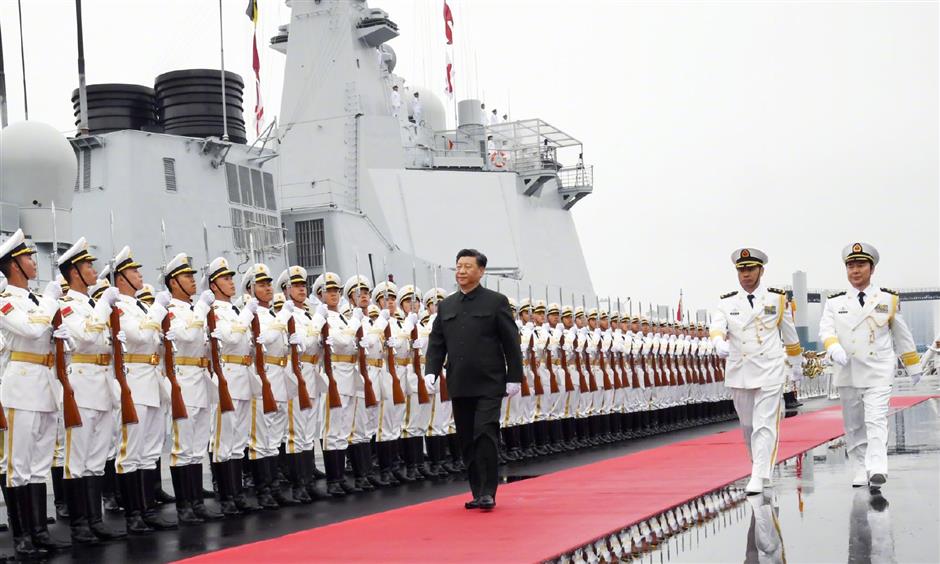
It's a long road towards being a tiger economy again
A month before the one-year anniversary of Pakatan Harapan’s ruling the government, Malaysia has earned the accolades of being a “boring” and under-performing stock market. The ringgit, which is the thermometer to gauge the economy, has weakened after the initial euphoria of appreciating as high as RM4 against the US dollar.
An economist had said that Malaysia without the Goods and Services Tax (GST) is too dependent on oil revenue. Budget 2019 was based on crude oil at US$70 and considering that the year-to-date average is lower, the country would not be able to keep to spending limits.
Ironically, the story of Malaysia’s being a “boring and under-performing” stock came as golfer Tiger Woods made a remarkable comeback to win his first major tournament since 2008. That was the time when the golfer’s on-course performance started to go downhill due to injuries and “off-course” affairs that led to a broken-marriage.
Sponsors stayed away from Tiger Woods and he lived with a tag as a great golfing talent that never made it. Now he is seen as a role model in the story of triumph against adversity. Woods US Masters win is now repeated as a story of why one must never give up and the fruits of labour will finally pay off.
Sadly, it only applies in the world of sports.
In the sporting world, there are clear rules and everybody play within the rules or they are disqualified. Sports world is based on meritocracy. If you good and talented, you would be found - some way or other - even if you live in Borneo.
Sarawak has produced amongst Malaysia’s best sprinter and diver in Watson Nyambek and Pandelela Rinong who proved their worth based on merit.
Running a government to please people with different demands is not so easy. Meritocracy is only a slogan. It reality, it is hard to implement.
For instance, the government’s bail-out of Felda and Tabung Haji are seen as further straining the country’s balance sheet.
The fear that the of Budget 2019 objective of keeping fiscal deficit at 3.4% cannot be achieved considering that the government has to fork out RM6bil to rescue Felda.
However, what investors fail to realise is that the government cannot afford not to bail out the likes of Felda and Tabung Haji. It cannot operate completely on meritocracy and go by the book strictly because there are political considerations to weigh on.
Felda needs to be rescued because of the massive mismanagement of funds. It involves the lives of 120,000 settlers and many more, if their families are taken into account. The Felda settlers are important voter bank and determine 52 parliament seats.
Most of them are Malays who form the bulk of the voting population of the country as a whole.
Whether we like or not, issues that Felda and Tabung Haji face has to be resolved if there is to be any political stability.
The only consolation is that those who are responsible for the mismanagement of Felda, Tabung Haji, 1Malaysia Development Bhd (1MDB) would eventually pay a price.
In communist China, these people would have faced the firing squad.
In Malaysia, it takes time to penalise those responsible under the law. Pakatan Harapan’s messaging to investors is that it provides accountability, transparency and discipline in running the government. It revealed the total debts and a bigger budget deficit for 2019 and left it to investors to decide if they are prepared to put money in the country.
That it does not tolerate corruption is a message that is being drummed countless times.
Is there is a premium in being transparent, accountable and standing firm against corruption? Yes there is. But as a fund manager says, it does not tell investors where to put their money.
It does not tell investors if there is going to be a continuity to the government’s policies and who the next Prime Minister is going to be after Tun Dr Mahathir Mohamad. The fund manager says that Malaysia needs to tell another story, apart from governance and transparency.
Towards this end, a good line of messaging would be on addressing the political transition after Dr Mahathir.
The fund manager is right in his argument because long term capital needs political stability and leadership certainty.
Dr Mahathir, who is named as among the most powerful persons by Time Magazine, probably knows best why he is delaying in setting a firm time table to hand over power to the only person who has been named so far, which is Datuk Seri Anwar Ibrahim.
Probably because the minute Dr Mahathir announces the time-table to handover, he would be a lame duck Prime Minister, a role the 93-year veteran politician would not relish.
Apart from politics, the other matter bogging investors is the slowing Malaysian economy.
The concern is that the economic growth of 4.5% would not be met and that Bank Negara would be forced to bring down the interest rates.
When interest rates are down because of a slowing economy, it dampens sentiments on the ringgit and puts yields of bonds under pressure.
The prospects of a lower yield and weakening currency are just the catalysts needed for bond investors to take some money off the table.
The unfavourable rating by little known Russel Fund Index earlier this week did not help matters. The end result is that the government bonds are under pressure and so is the ringgit.
The government should keep up with doing the things it can best do, which are enhancing transparency, governance and being more careful in handling public funds. Investors will view with scepticism until they see hard numbers on the economy and consistency in growth.
The Malaysian stock market was among the world’s best in 1993 on the back of a roaring economy that started its growth path some four years earlier.
The economy over-heated, the government got carried away with spending and we paid a heavy price by the ringgit and stock market crashing. It all came down with a thud in 1997.
The Pakatan Harapan government wants to see Malaysia be a “tiger economy” once again.
But it would not be easy. The road ahead is treacherous with lots of obstacles – balancing the demands of the political and social agenda.
We cannot do it the Tiger Woods way because there is no meritocracy when it comes to governing a country. But we will get there eventually as long as we stay the course.

















